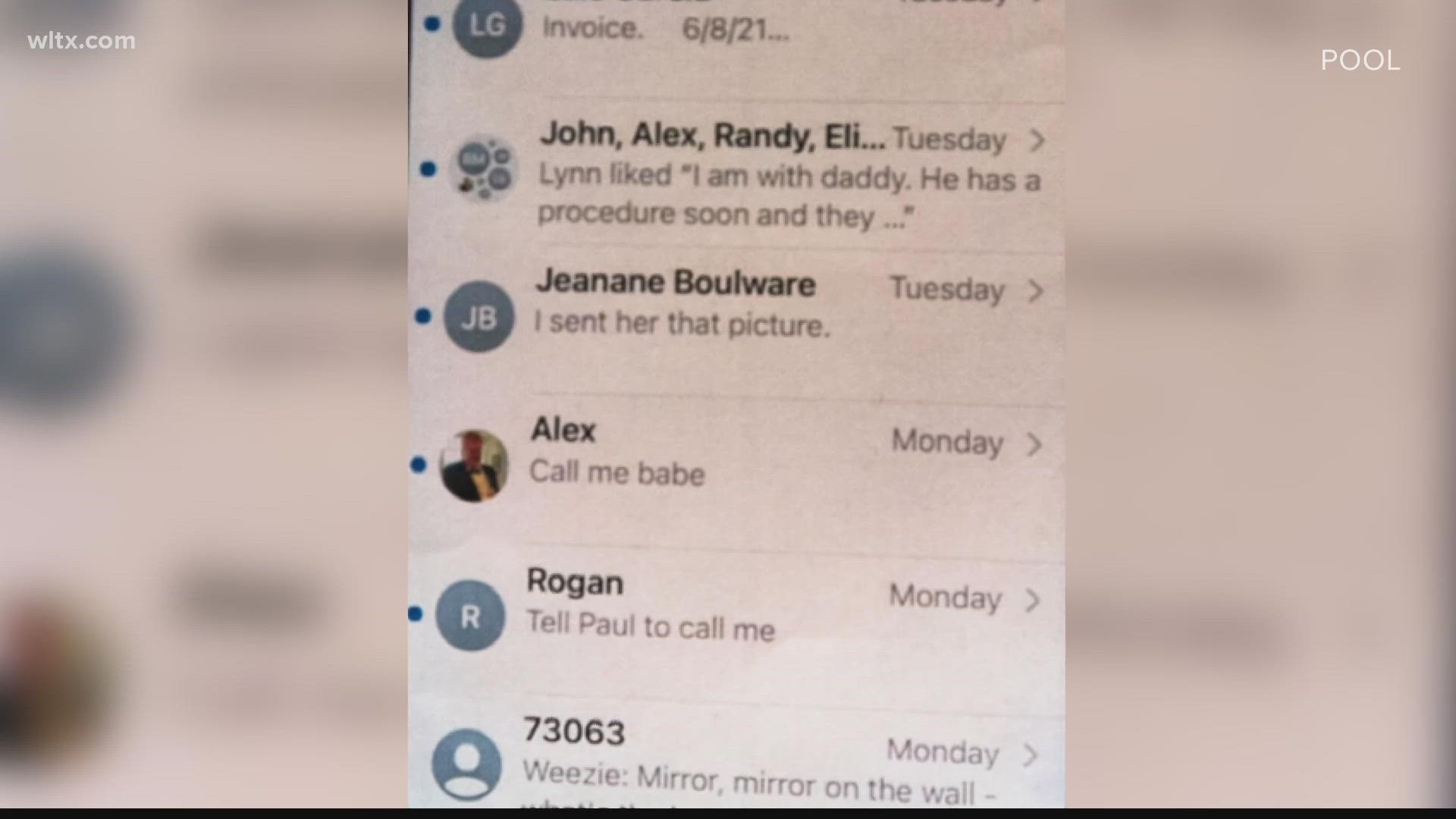WALTERBORO, S.C. — A digital footprint includes a person's phone calls, texts, GPS location, even their steps tracked via cell phone. The jury in the Alex Murdaugh double murder trial is considering that data, specifically when it comes to Maggie, Alex and Paul's digital footprints.
New cell phone data down to the millisecond has been introduced in court throughout week two of the Murdaugh trial.
So where does this data live?
"Phones use many times SQLite databases to store information. They will go in, and inside those SQLite databases, there’s things we’re able to obtain by doing the full file system extraction and things you may see in that, said Lieutenant Britt Dove, SLED computer crimes expert. "A big one is called KnowledgeC database. You can see if the phone has been turned, if it’s in portrait mode, straight up and down, or it’s been turned to vertical, and landscape mode. You can see if the power goes out on a phone, from the power log database, and what kind of battery percentage you may have. It will also have things in there in the encrypted databases. It’ll have geolocation stuff, from GPS stuff, it’ll contain things like Bluetooth connections, where you can see if your phone connected to a Bluetooth device previously, and when was the last time it connected to it."
Turns out, according to witnesses who have taken the stand already and specialize in technology, putting a phone in airplane mode, removing the SIM card and turning the phone off will prevent signals from transmitting. But solely putting it in airplane mode will still allow the phone to receive GPS coordinates and it might even ring from an incoming phone call.
"The network would still try to find where you're located, so if you're in airplane mode, the network may not know where you are, so it would still attempt to ring," said Michael Knecht, senior analyst at Verizon.
Lt. Dove explains shifting orientation of the phone from landscape to portrait is also recorded with time stamps and so are footsteps, but there's a way to limit some tracking features.
"Majority of the time, when you add a new app to your phone, it asks you, do you want to allow location services? Do you want to allow it all the time? Only while using the app? Or never? You can also go in to your own settings and change those location services," Dove said.
Witnesses in the courtroom testify footsteps and distance walked on a phone isn't always 100% accurate when tracked, with the possibility that a phone might move a short distance and not record steps. Dove testifies usually ten or more steps are tracked. That also means not tracking steps while moving in a car.
Witnesses explain that detailed Verizon cell phone records are usually kept for 18 months. They add a phone using a database can overwrite itself every two days or up to 45 days, with always the newest data in and oldest data out.

